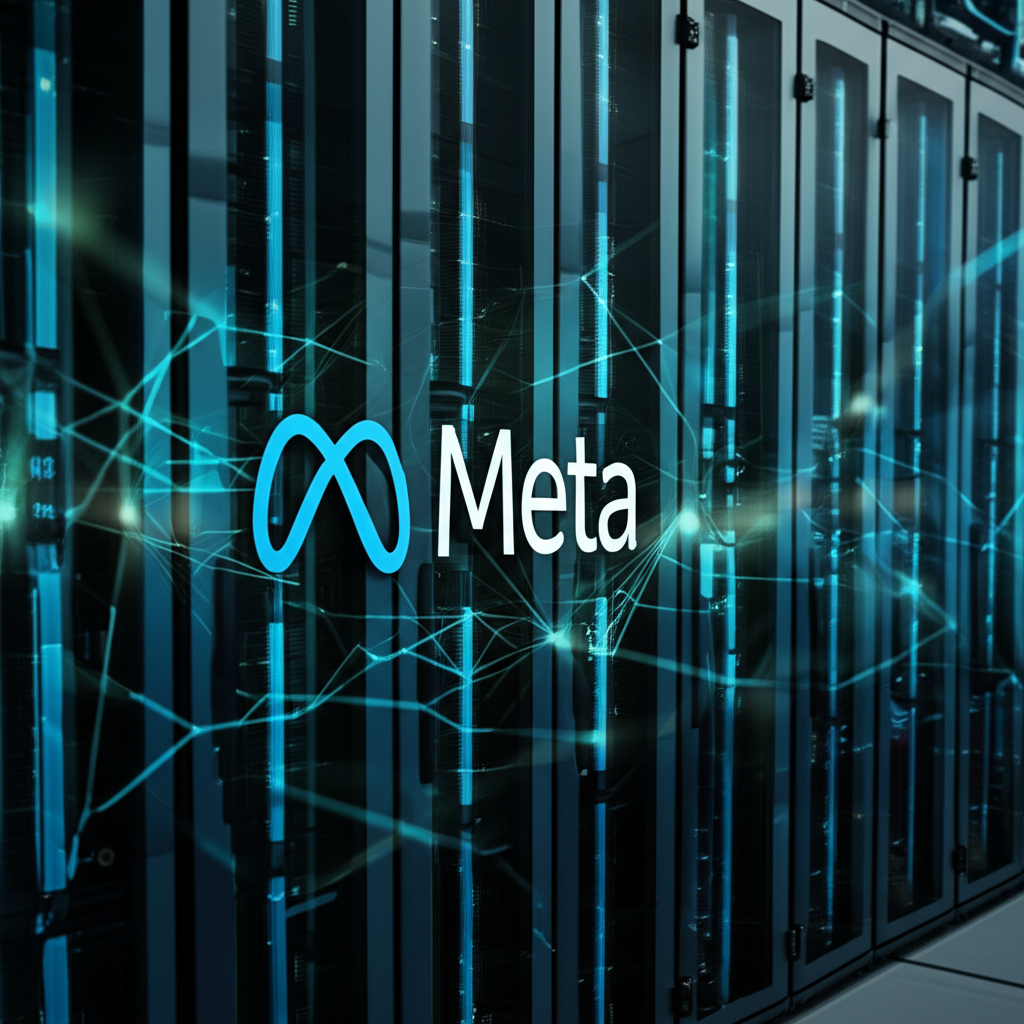GPT-5 Arrives: OpenAI's Unified AI Revolution Is Here
The AI world is buzzing with the confirmation that OpenAI's GPT-5 is slated for launch this summer, heralding a unified AI revolution. This new model represents a significant leap forward, seamlessly merging advanced reasoning with multimodal capabilities into a single system. Early performance benchmarks are impressive: GPT-5 boasts a 30% accuracy boost compared to GPT-4 in multi-step tasks. Furthermore, the GPT-5 features and capabilities include support for over 100 languages and real-time web search integration, ensuring users have access to the most up-to-date information. Response times are also getting a boost, with the new model offering results 25% faster. Perhaps most significantly, OpenAI is tackling a major pain point, with GPT-5 demonstrating a 40% reduction in hallucinations compared to its predecessor. The GPT-5 release date is highly anticipated in the AI community. The GPT-5 vs GPT-4 comparison clearly favors the new model. For those eager to delve deeper into the world of AI, explore our https://www.best-ai-tools.org/learn/ai-explorer and the https://www.best-ai-tools.org/learn/ai-fundamentals.
Meta Bets Big on AI: $14.3 Billion Investment in Scale AI

Meta has finalized a monumental $14.3 billion investment in Scale AI, signaling a massive bet on the future of artificial intelligence. This move sees Alexandr Wang, co-founder of Scale AI, stepping up to lead Meta's “Superintelligence Labs.” Scale AI, known for its expertise in data labeling for AI, generated a staggering $870 million in revenue last year. This investment is poised to significantly impact Meta's AI development, particularly its model training capacity. Meta’s strategic investment underscores its urgent need to accelerate its AI efforts and potentially close the gap with its competitors. Securing Scale AI’s data pipeline is critical for Meta's next-generation AI endeavors. This substantial investment also offers insight into Scale AI's valuation, solidifying its position as a leader in providing crucial data services for the burgeoning AI industry. In essence, Meta's move is a clear indication of the escalating race for AI dominance.
DeepSeek Disrupts: China's Cost-Effective AI Challenges Western Dominance
China's DeepSeek is shaking up the AI landscape with its upgraded R1-0528 reasoning model. This DeepSeek AI model has achieved a remarkable performance leap, surging from 70% to an impressive 87.5% on math benchmarks, demonstrating its enhanced problem-solving capabilities. What's truly disruptive is its cost-effectiveness: at just $2.19 per million tokens, it drastically undercuts the pricing of comparable Western AI models. This combination of high performance and low cost is reshaping cost-performance expectations in the AI industry. With a focused 200-person team, DeepSeek is proving that advanced reasoning capabilities don't have to break the bank. This development presents a significant challenge to the dominance of Western AI and opens the door for more affordable AI solutions globally. The rise of Chinese AI like DeepSeek is democratizing access to powerful AI tools, potentially leveling the playing field for businesses and researchers worldwide. You can explore other innovative AI tools and news on https://www.best-ai-tools.org/ai-news.
European AI Act: Regulations Proceed Despite Industry Pushback

Despite significant industry pressure, the EU has firmly rejected calls from over 45 tech firms, including major players like Airbus, Google, and Meta, to postpone the implementation of the European AI regulation, known as the AI Act. This decisive move underscores the EU's commitment to setting a clear framework for artificial intelligence, even as companies grapple with the implications.
The AI regulation timeline is now set in stone: General-purpose AI rules are slated to take effect in August 2025, while mandates for high-risk systems will follow in 2026. Non-compliance with these regulations could result in hefty fines, potentially reaching up to 7% of a company's revenue, making AI Act compliance a top priority for businesses operating within the EU.
The implications of the Act are far-reaching. While larger tech firms possess the resources to adapt, smaller players may face significant challenges in meeting the stringent requirements. This regulatory landscape emphasizes the need for agile compliance strategies and a thorough understanding of the evolving rules. You can stay up to date with the latest developments and find tools to help navigate this complex terrain at https://www.best-ai-tools.org/ai-news.
AI Chip Market Boom: Geopolitics and Supply Chains in the Spotlight
Forecasts predict a massive boom for the AI chip market, projecting it to reach $229 billion by 2032, demonstrating a compound annual growth rate (CAGR) of 20.5%. However, this rosy outlook is clouded by significant geopolitical and supply chain challenges. The U.S. government's export curbs on chips to Malaysia and Thailand are designed to limit China’s access to advanced technologies, potentially disrupting the global distribution network. Adding to the complexity, Samsung has warned of a 39% profit drop in Q2, citing GPU supply delays as a major contributing factor. This AI chip shortage and these trade restrictions highlight how hardware limitations can significantly strain development pipelines and potentially reshape the future of global compute leadership. The geopolitics of AI chips are clearly impacting the AI chip market forecast, making strategic hardware procurement more critical than ever.
AI Breakthroughs: Transforming Healthcare, Materials Science, and Scientific Research
The transformative power of AI continues to permeate various sectors, with groundbreaking applications emerging daily. In healthcare and drug discovery, Alphabet's Isomorphic Labs is on the cusp of initiating human trials for its pioneering AI-designed drugs, potentially revolutionizing pharmaceutical development. Simultaneously, Singapore is leveraging AI in materials science to simulate chemical behaviors, significantly accelerating R&D timelines and opening new avenues for innovation in material design. Expanding the horizons of scientific research further, DeepMind’s AlphaGenome is making strides in interpreting non-coding DNA, also known as dark matter, at a massive million-base-pair scale. These advancements highlight AI's increasing role not just in automating tasks, but in fundamentally changing how we approach complex challenges in healthcare, materials science, and scientific exploration. For more information about AI across different applications, visit our https://www.best-ai-tools.org/ai-news hub.
Global AI Regulation: Navigating Divergent Approaches
While the EU plows ahead with its AI Act, the global landscape of AI regulation remains fragmented. The U.S. Senate voted 99–1 to lift a proposed 10-year AI regulation moratorium, preserving state-level rulemaking. This means that instead of a unified national approach to US AI policy, individual states can create their own laws and regulations, leading to a patchwork of compliance requirements for businesses operating across state lines. Simultaneously, Asia continues to craft its own AI standards amid rapid innovation. This means distinct approaches to Asian AI policy could emerge, reflecting diverse cultural values and economic priorities.
The impact of these fragmented regulations on AI deployment is significant. Companies must develop agile compliance strategies to navigate different rules and standards across jurisdictions. This creates both risks and opportunities for cross-border AI deployment. Navigating global AI regulation requires staying informed about the evolving legal landscape and adapting business practices accordingly. For example, understanding Stanford’s ethical AI framework, as discussed in our article on AI in Healthcare: Revolutionizing Diagnosis, Treatment, and Patient Care, found here: [https://www.best-ai-tools.org/ai-news/ai-in-healthcare-revolutionizing-diagnosis-treatment-and-patient-care](https://www.best-ai-tools.org/ai-news/ai-in-healthcare-revolutionizing-diagnosis-treatment-and-patient-care), is essential for responsible AI implementation.
The AI Platform Wars: Microsoft, Google, and OpenAI Battle for Dominance

The corporate AI strategies of tech giants are rapidly evolving as they vie for AI platform dominance. Microsoft is aggressively knitting AI agents into its core offerings, including Windows, GitHub, and Azure, creating a cohesive Microsoft AI ecosystem. Google, despite the prowess of Gemini 2.0 Pro, faces challenges in maintaining clear messaging around its capabilities and future direction for Google AI. Meanwhile, OpenAI is preparing to launch productivity features that directly rival established suites like Office and Workspace, indicating a bold expansion of OpenAI strategies. These moves underscore the intensity of the platform wars unfolding in the AI space, where control over the development environment and user experience is paramount. This battle for dominance will dictate where businesses build their AI solutions, how users adopt these new technologies, and ultimately, which ecosystems capture the most value.
Market Implications: AI Price Wars, Talent Scramble, and Regulatory Savvy
Meta’s massive investment in Scale AI, highlighted in today’s briefing, sends ripples throughout the AI market, suggesting significant market implications. This move, coupled with reports of extravagant signing bonuses for AI talent, and the price disruption caused by models like DeepSeek's R1-0528, all point toward a looming price war. Infrastructure giants now face the formidable challenge of balancing massive CapEx with the need to remain competitive, a delicate act indeed. Meanwhile, startups find themselves in a relentless pursuit of scale-economies while also striving for niche excellence. Achieving sustainable growth in this rapidly evolving landscape will depend heavily on developing cost-effective AI models. The AI talent war continues to intensify, with companies battling to secure the best minds in the field. Finally, navigating the growing AI market fragmentation, with its varying regulatory landscapes, will be crucial for success. For more insights into specific tools mentioned, explore our listings for tools like DeepSeek, and explore the https://www.best-ai-tools.org/ai-news page to remain current on the swiftly changing AI news.
🎧 Listen to the Podcast
Hear us discuss this topic in more detail on our latest podcast episode: https://creators.spotify.com/pod/show/bestaitools/episodes/Daily-AI-News--July-8--2025-GPT-5--Meta--DeepSeek--EI-AI--Google-e358lk7
SEO Keywords
GPT-5, AI, Artificial Intelligence, DeepSeek, Scale AI, AI Act, AI Chips, AI regulation, AI market, Meta AI, OpenAI, AI investment, AI drug discovery, AI in materials science, AI ethics
Related Hashtags
#AI #ArtificialIntelligence #GPT5 #DeepSeek #AIAct
For more AI insights and tool reviews, visit our website www.best-ai-tools.org, and follow us on our social media channels!
X (Twitter): https://x.com/bitautor36935
Instagram: https://www.instagram.com/bestaitoolsorg/
Facebook: https://www.facebook.com/profile.php?id=61577063078524
LinkedIn: https://www.linkedin.com/company/best-ai-tools-org
YouTube: https://www.youtube.com/@BitAutor
Medium: https://medium.com/@bitautor.de
Telegram: https://t.me/+CxjZuXLf9OEzNjMy



